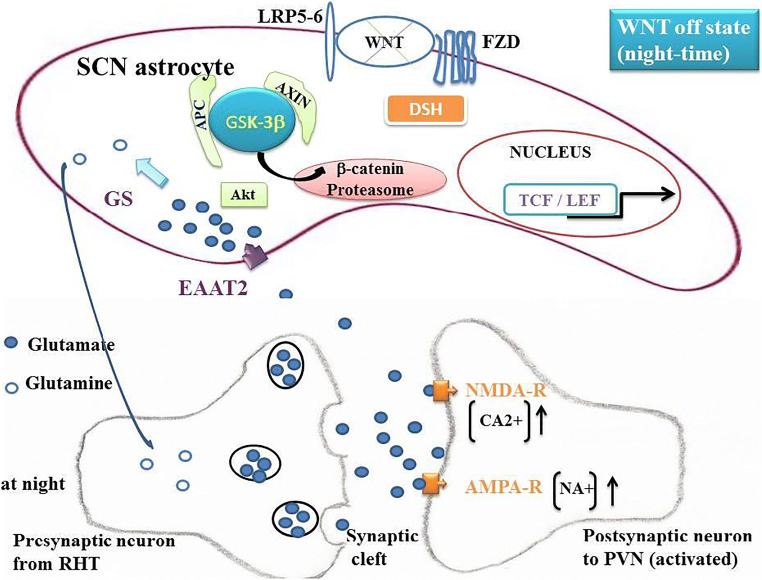Fig. 3.
Unphosphorylated glycogen synthase kinase-3β (GSK-3β) and canonical WNT/β-catenin signaling in “off” state. Due to the decrease in the phosphorylation of pGSK-3β at night, the unphosphorylated form GSK-3β increases. This occurs at night reaching a nadir at ZT14. The canonical WNT pathway becomes in “off-state.” The cytosolic β-catenin is phosphorylated and undergoes the destruction process into the proteasome. This decreases the expression of EAAT2, GS, and cMYC. Thus, the re-uptake of glutamate into the SCN astrocyte cytoplasm decreases and the glutamate content increases in the synaptic cleft, leading to an augmentation of NMDA-R and AMPA-R activation. This leads to an increase in parasympathetic tone and a diminution of the sympathetic tone and in fine a decrease in BP at night.

